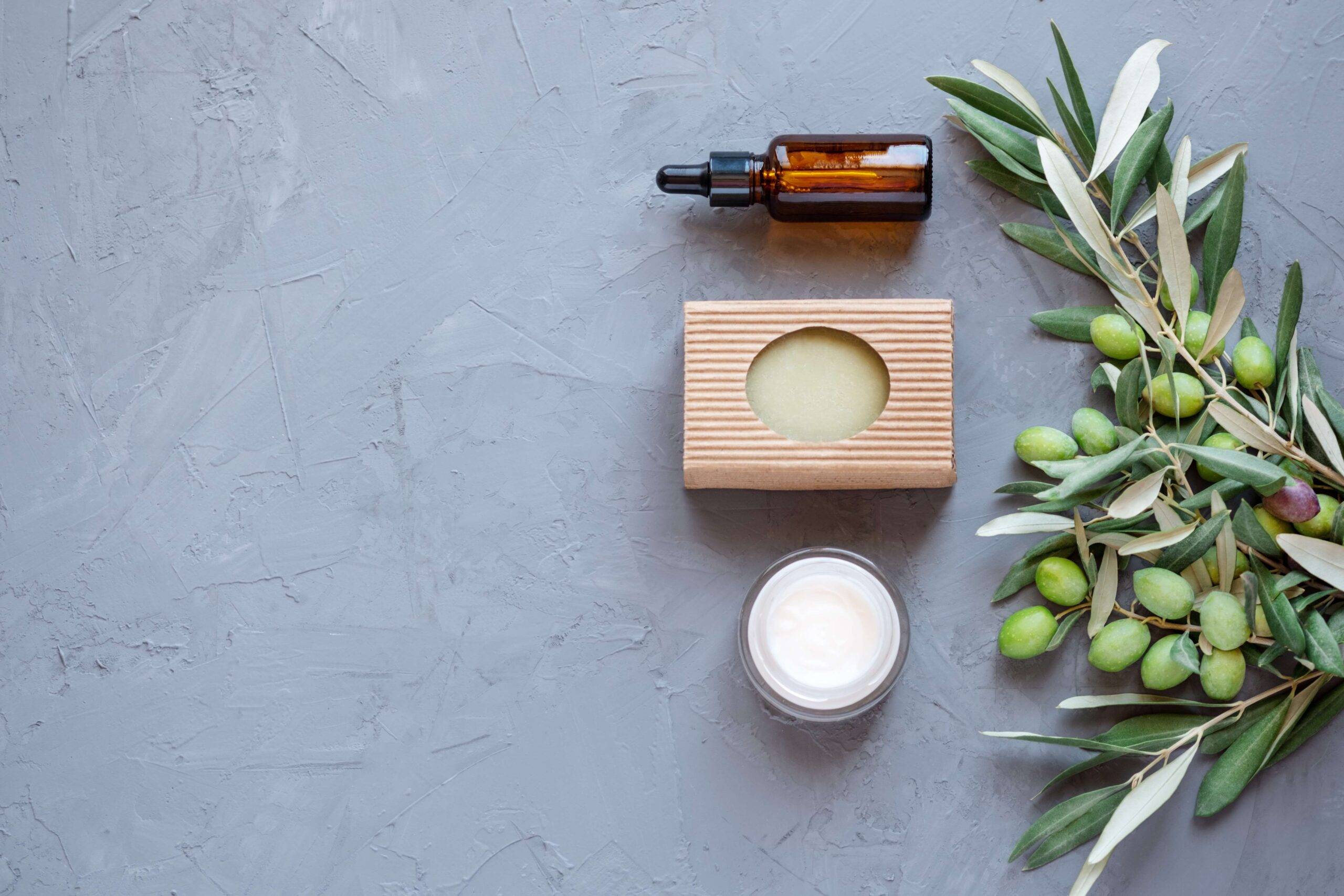The Science of Olive Oil in Skincare: Benefits, Risks, and Clinical Evidence
Introduction
For centuries, olive oil has been more than just a kitchen staple—it has been a well-loved beauty elixir. Packed with essential fatty acids, antioxidants, and anti-inflammatory compounds, it has intrigued scientists and skincare enthusiasts alike. But does the science back up its reputation? Let’s explore how olive oil can transform your skincare routine, while also considering the risks.
1. The Hydration Hero: Moisturizing and Barrier Repair
Olive oil is a natural emollient, meaning it deeply penetrates the skin, providing hydration at a cellular level. The presence of oleic acid enhances skin permeability, helping to deliver moisture effectively. Squalene, a compound naturally found in human sebum, makes olive oil especially compatible with skin hydration needs. It mimics the skin’s natural oils, reducing trans-epidermal water loss (TEWL) and preventing dryness. Additionally, vitamin E protects against oxidative damage while further locking in moisture.
A study conducted in Riyadh, Saudi Arabia, revealed that 88.7% of participants used olive oil as a moisturizer, indicating strong anecdotal and cultural approval. However, scientific validation also confirms its effectiveness, as highlighted in PMC8991441.
2. The Age-Defying Antioxidant
The process of aging is primarily driven by oxidative stress, which breaks down collagen and elastin—the building blocks of youthful skin. Olive oil contains polyphenols and vitamin E, two potent antioxidants that neutralize free radicals, preventing premature skin aging. Research has shown that these compounds not only reduce fine lines and wrinkles but also improve skin firmness and elasticity over time.
Furthermore, the high squalene content in olive oil enhances skin smoothness, making it an effective anti-aging agent. Some studies even suggest that olive oil provides mild photoprotection, reducing the harmful effects of UV radiation, though it should never replace sunscreen (Healthline).
3. Nature’s Healing Agent: Wound Healing and Skin Regeneration
Did you know olive oil has been used historically to aid wound healing? Modern science confirms that phenolic compounds found in extra virgin olive oil (EVOO) promote fibroblast proliferation and migration, crucial for tissue repair. Fibroblasts help generate new skin cells, accelerating wound closure and collagen synthesis.
A study in PMC10181161 demonstrated that applying EVOO to wounds enhanced healing rates, making it a useful component in natural healing salves. Additionally, olive oil has been studied for its ability to reduce scarring, likely due to its ability to promote skin regeneration and hydration at the same time.
4. The Anti-Inflammatory and Antibacterial Powerhouse
Chronic skin inflammation is often at the root of conditions like eczema, psoriasis, and dermatitis. Olive oil possesses anti-inflammatory properties, thanks to its high levels of oleocanthal—a compound with similar effects to ibuprofen. This makes it beneficial for soothing irritated and inflamed skin.
Additionally, studies have found that olive oil has natural antibacterial properties, which may help combat minor infections, acne-causing bacteria, and even fungal overgrowth. It has been used historically to treat minor cuts and abrasions due to its ability to inhibit bacterial growth and support immune response (Medical News Today).
5. Know the Risks: Is Olive Oil Right for You?
Despite its numerous benefits, olive oil is not suitable for everyone. Here are key considerations before using it:
- Skin Barrier Sensitivity: Some research indicates that prolonged use may weaken the skin’s natural barrier, particularly in infants and individuals with compromised skin.
- Comedogenic Rating: Olive oil has a moderate comedogenic rating of 2 (on a 0-5 scale), meaning it could clog pores for acne-prone individuals.
- Allergic Reactions: Though rare, some individuals may experience contact dermatitis or irritation, especially if their skin is sensitive to plant-based oils.
- UV Protection Misconception: Olive oil offers some antioxidant-based UV defense, but it does not replace sunscreen. Using it without additional UV protection may increase susceptibility to sun damage.
Dermatologists recommend conducting a patch test before incorporating olive oil into a skincare routine, especially for individuals with sensitive or acne-prone skin.
Conclusion
Olive oil is a versatile skincare powerhouse, with benefits ranging from deep hydration to anti-aging and wound healing. Scientific evidence supports its ability to nourish, protect, and rejuvenate the skin. However, its suitability depends on individual skin types and conditions. As with any skincare ingredient, moderation and proper usage are key. If you’re unsure, consult a dermatologist to determine if olive oil is right for your skin.
References













